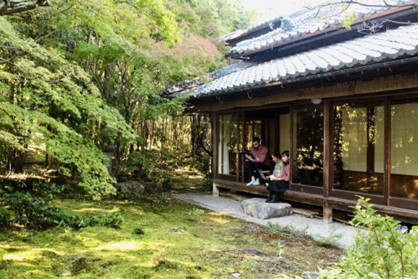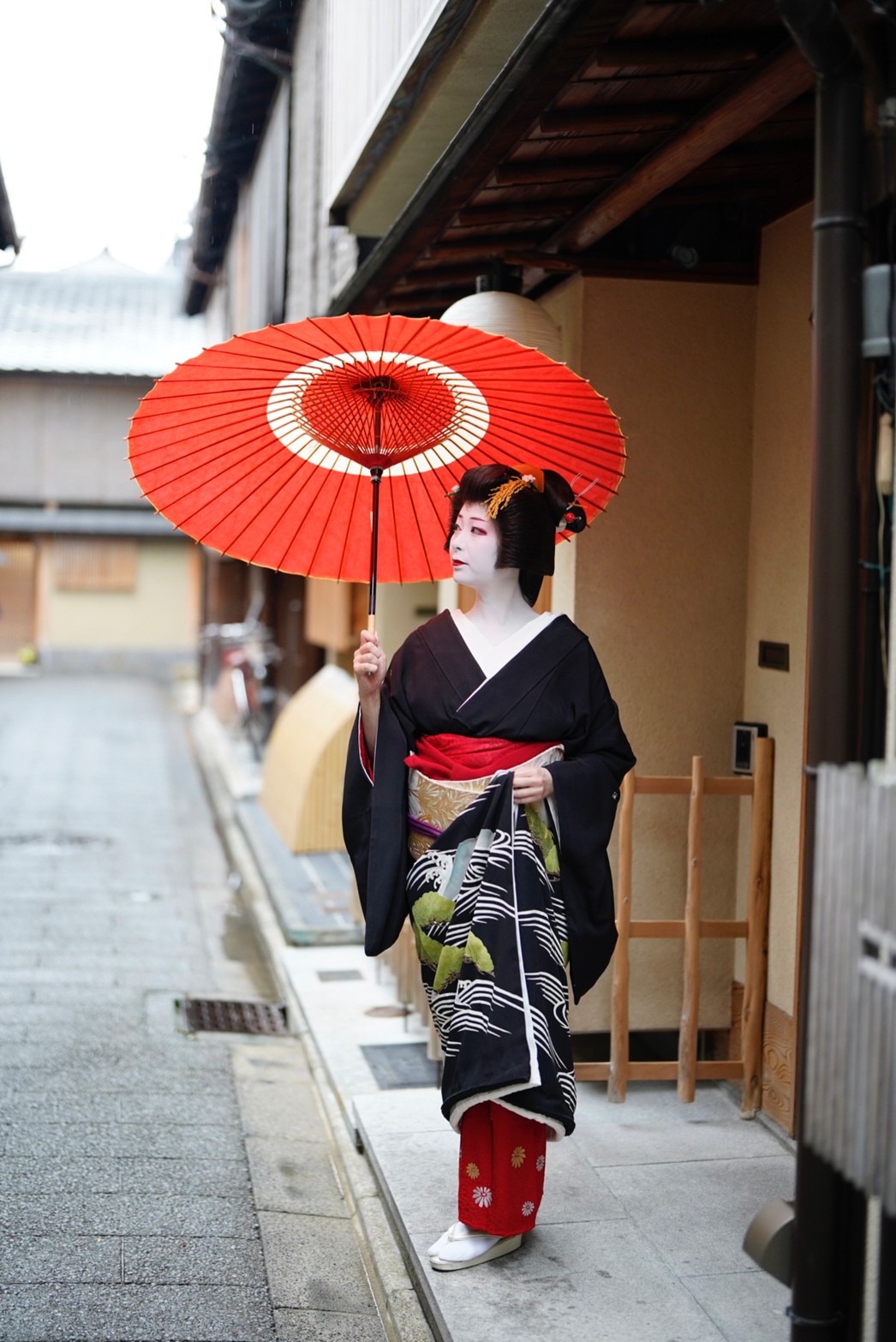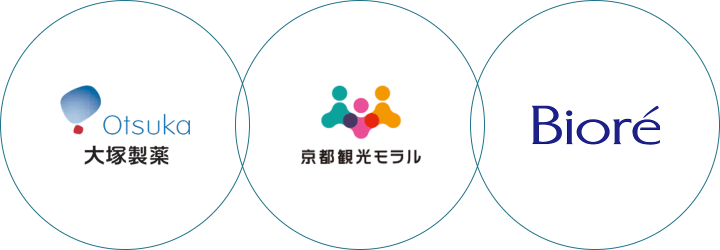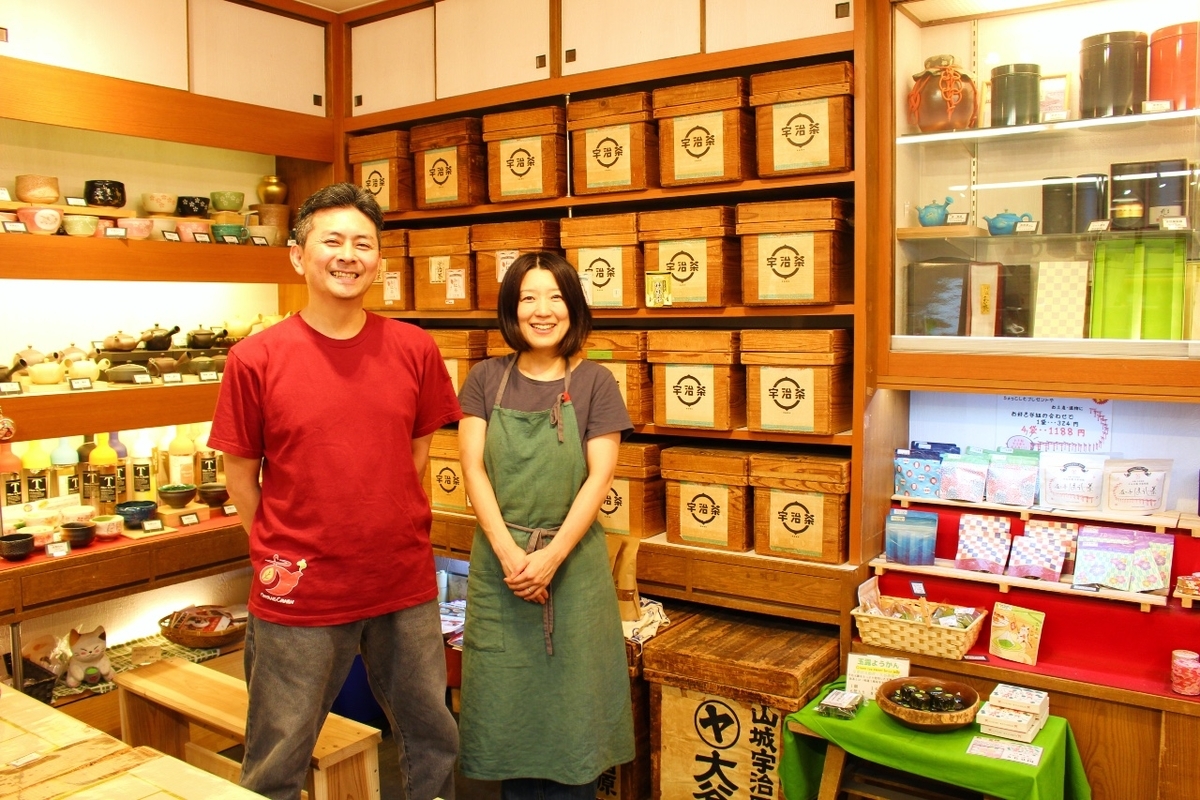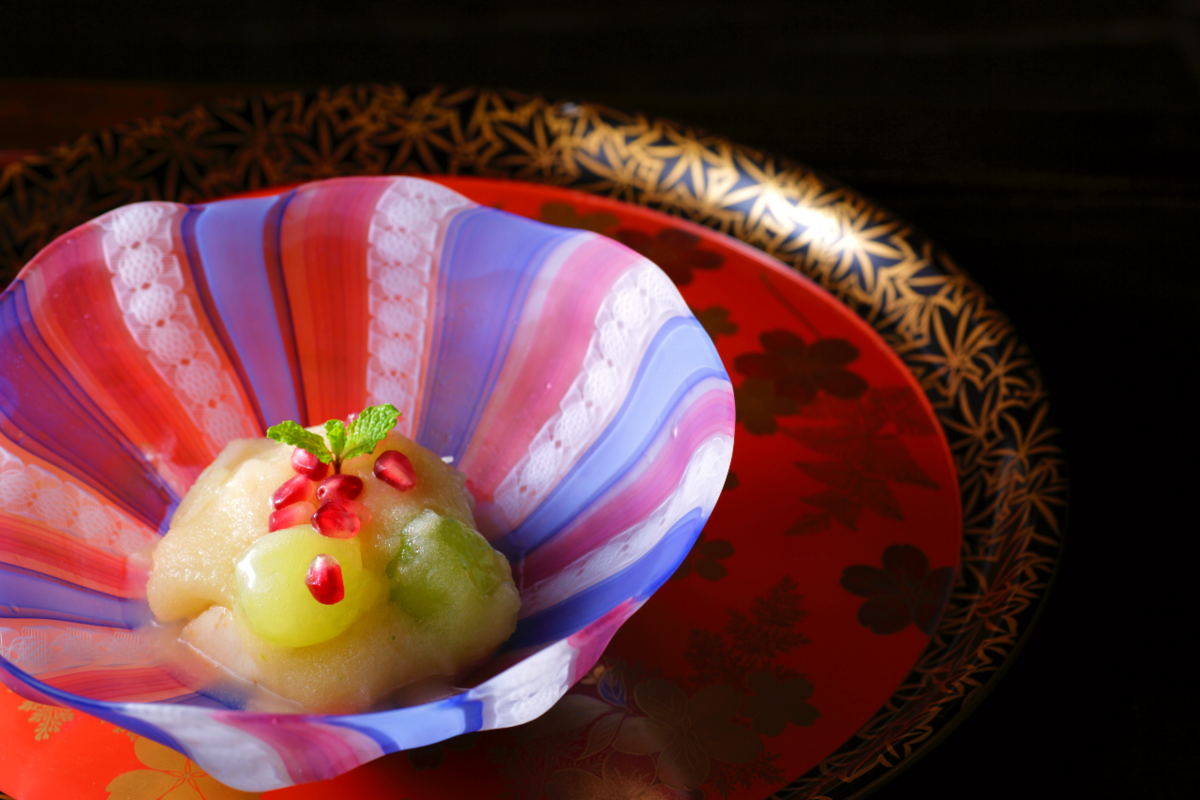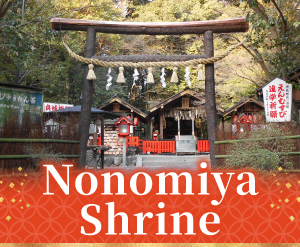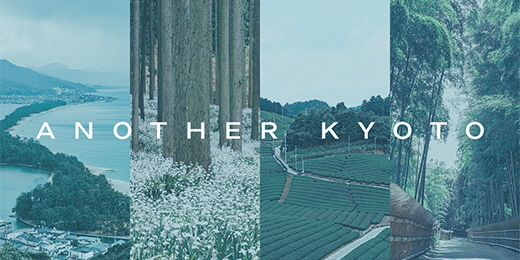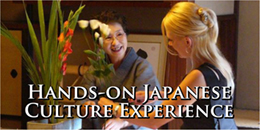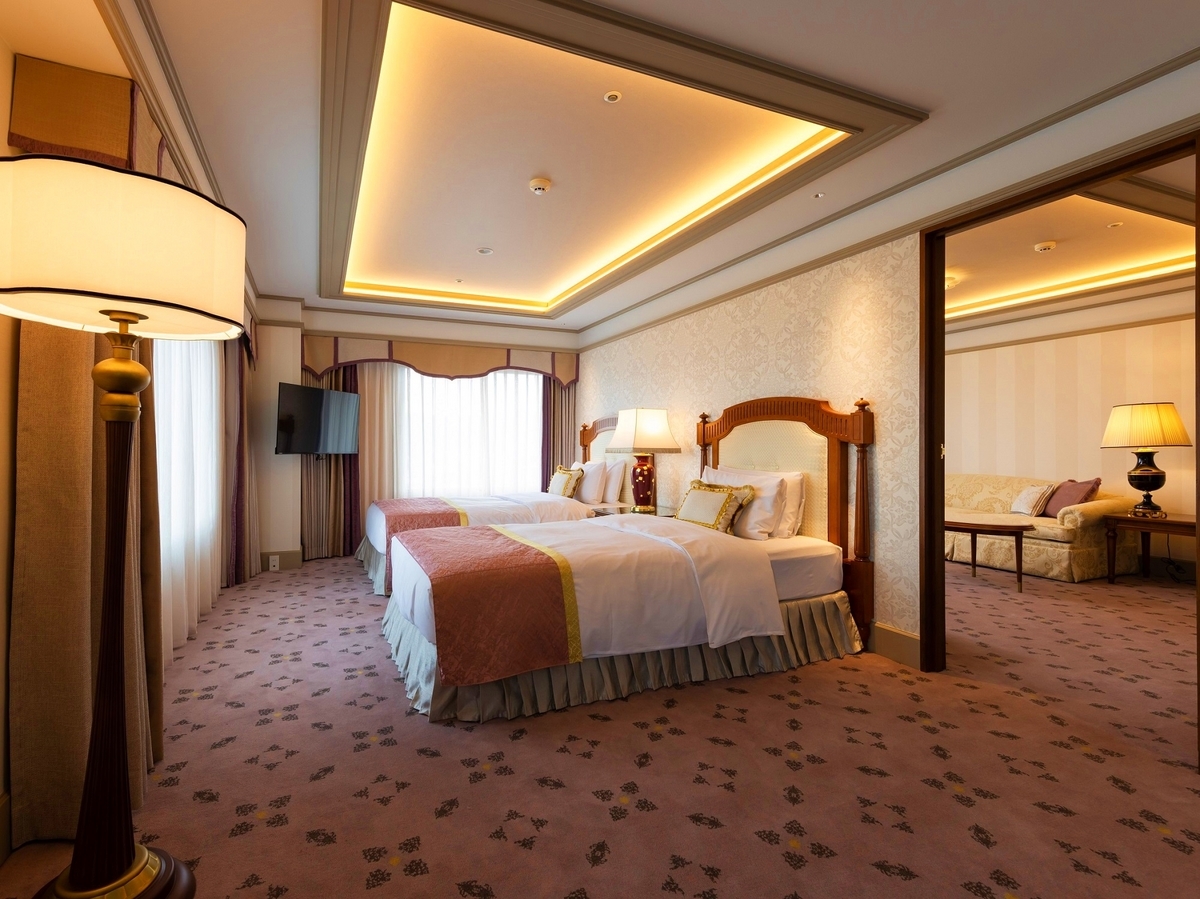
Suite Room (Executive Floor) – Photo courtesy of Hotel Nikko Princess Kyoto
Hotel Nikko Princess Kyoto, located near Shijo-Karasuma, the busiest shopping district in Kyoto, will soon be celebrating its 20th anniversary.
In addition to serving as a base for people enjoying sightseeing, the hotel has also been highly praised by both Kyoto City and the national government for its contributions to the local community, such as its support for the Gion Festival and disaster response, as well as for establishing its own unique recycling system. It has also been selected as a “Company Committed to Excellence in Ethical and Sustainable Tourism Business Practices” under the “Kyoto Guidelines for Sustainable Tourism” actively promoted by Kyoto City.
At the heart of hospitality is a spirit of caring for the local community and its people
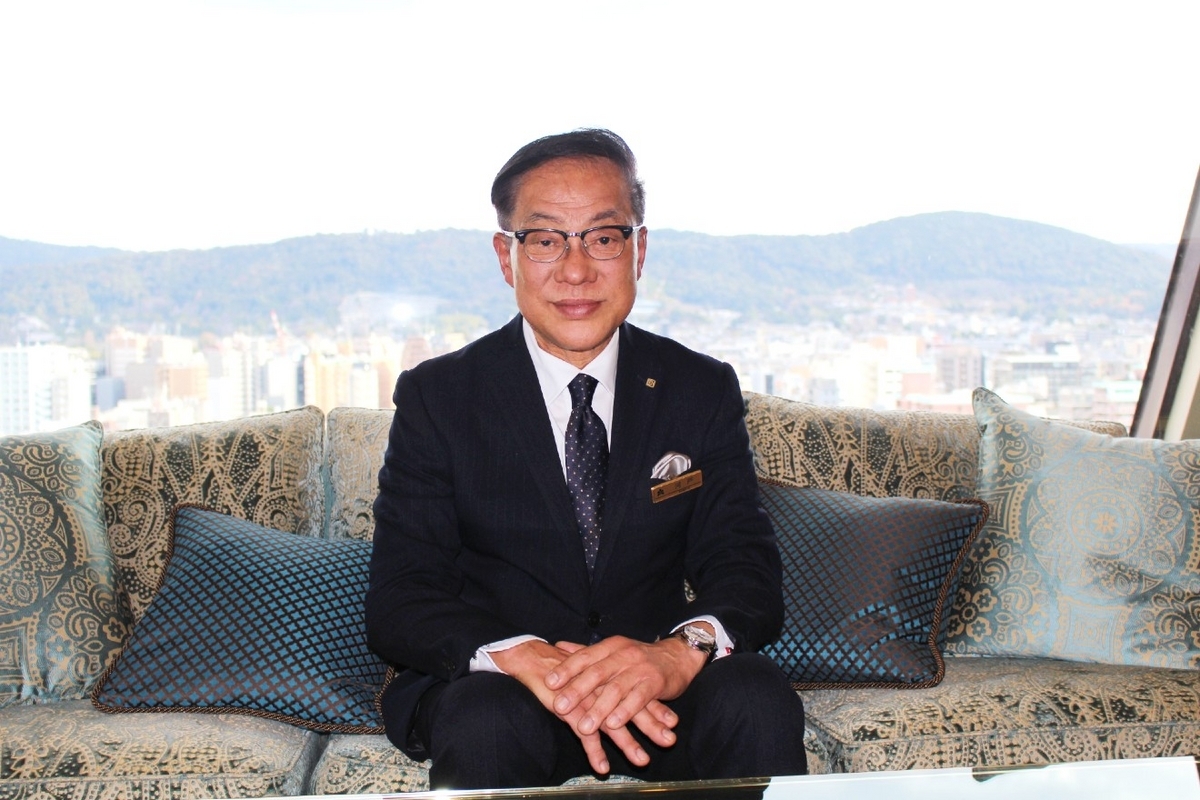
Shozo Kawato, General Manager, Hotel Nikko Princess Kyoto
Hotel Nikko Princess Kyoto offers excellent access to many of the most popular tourist attractions in Kyoto. The hotel was built in Kyoto by Kyocera Group, one of the city’s leading companies, and General Manager Shozo Kawato says, “From the time we first opened, we have been committed to contributing to the local community and society so that everyone can enjoy using our hotel as a place that represents our city.”
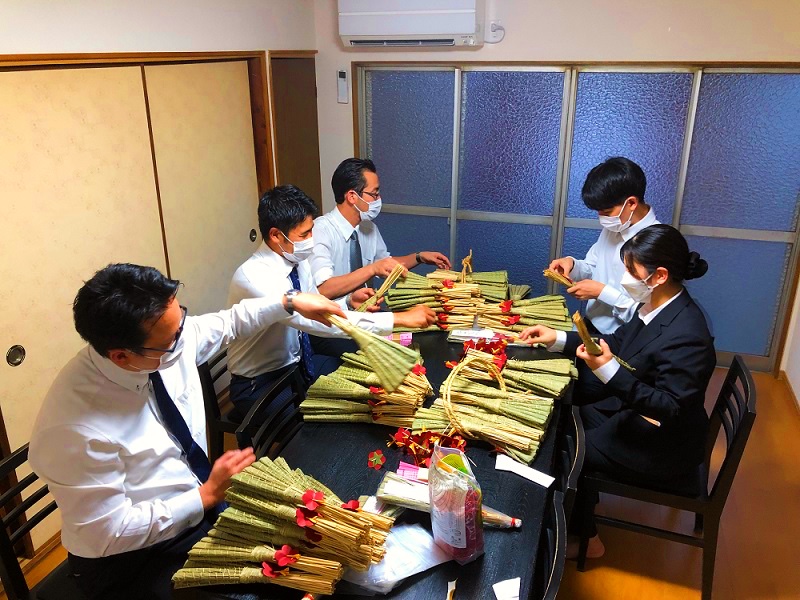
Making “chimaki” (Japanese dumpling wrapped in bamboo leaf) for the Hosho Yama float – Photo courtesy of Hotel Nikko Princess Kyoto
For example, at the Gion Festival, the hotel provides a place of worship for the shimenawa (large ropes made of rice straw to ward off evil spirits) and imitake (divine bamboo) to hold up the shimenawa as part of the preparations for the shimenawa-kiri (ritualistic cutting of a shimenawa) performed by the chigo (sacred child) on the Naginataboko float at the front of the Yamahoko Junko (float procession). In Takahashi-cho, where the hotel is located, the Imitake Hosankai has been organized for a long time, and the place of worship has rotated around the town, and the hotel reportedly offered the use of its banquet hall to make the event easier to manage.
“It was actually our cleaning activities that led to us being involved in the festival,” says Kawato. As the employees worked together to clean up the area, they began expanding the scope of their cleaning efforts to include not only the hotel grounds but also the surrounding area and roads, and gradually became friendly with the neighboring residents, becoming more integrated into the local community. As a result, they were invited to participate in the events held in the Yamahoko-cho area. The Hosho Yama float in the neighboring Yamahoko-cho district is led by General Manager Kawato himself, and they also lend their hand to the local residents by making chimaki and talismans, making it a valuable opportunity for new employees to learn about Kyoto’s culture and its relationship with the local community.
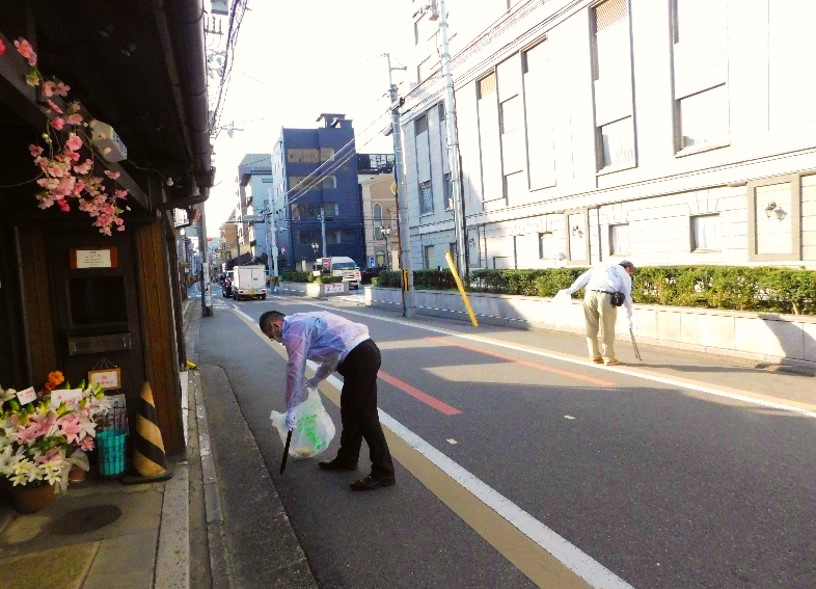
Employees cleaning the area around the hotel – Photo courtesy of Hotel Nikko Princess Kyoto
The hotel prioritizes the training of its staff as a vital part of providing high-quality service, and it regularly and systematically holds training sessions in a conversational format based on examples of successes and failures experienced by each department. In addition, by conducting “cross-training” in which employees take on unusual tasks, they are able to improve efficiency and productivity by promoting multitasking. The hotel has also introduced a “mentor system” in which senior employees support newer employees, and they also encourage employees to obtain various qualifications, with General Manager Kawato himself taking the lead in taking the Kyoto Tourism Culture Certification Test and other certification exams to increase the employees’ motivation.
A night of heavy rain highlights the attitude of the hotel and how each individual should conduct themselves
In terms of developing human resources, Kyocera’s founder, the late Kazuo Inamori, used the phrase “What is the right thing to do as a human being?” as a guideline, and Kawato shared a story from last summer that really highlights the spirit of this principle.
It was a day when the Shinkansen services were suspended due to heavy rain. It was already evening when the hotel received a call asking if they could provide accommodation and meals for the next day for 150 students who had been stranded at Kyoto Station during a school trip. Despite the fact that they were expecting to operate at a loss, the staff in charge immediately decided to accept the request and began making preparations, but they were unable to get breakfast ready in time for the next day. To resolve this situation, the staff worked tirelessly, traveling to the nearby convenience stores to buy enough rice balls for all the students, and managed to get enough for everyone in time for the next morning. Kawato recalls, “I feel that the reason we were able to act on our own judgment on the spot without thinking about profit when we were dealing with those kids in need was because we had a guiding principle of wanting to do the right thing.”
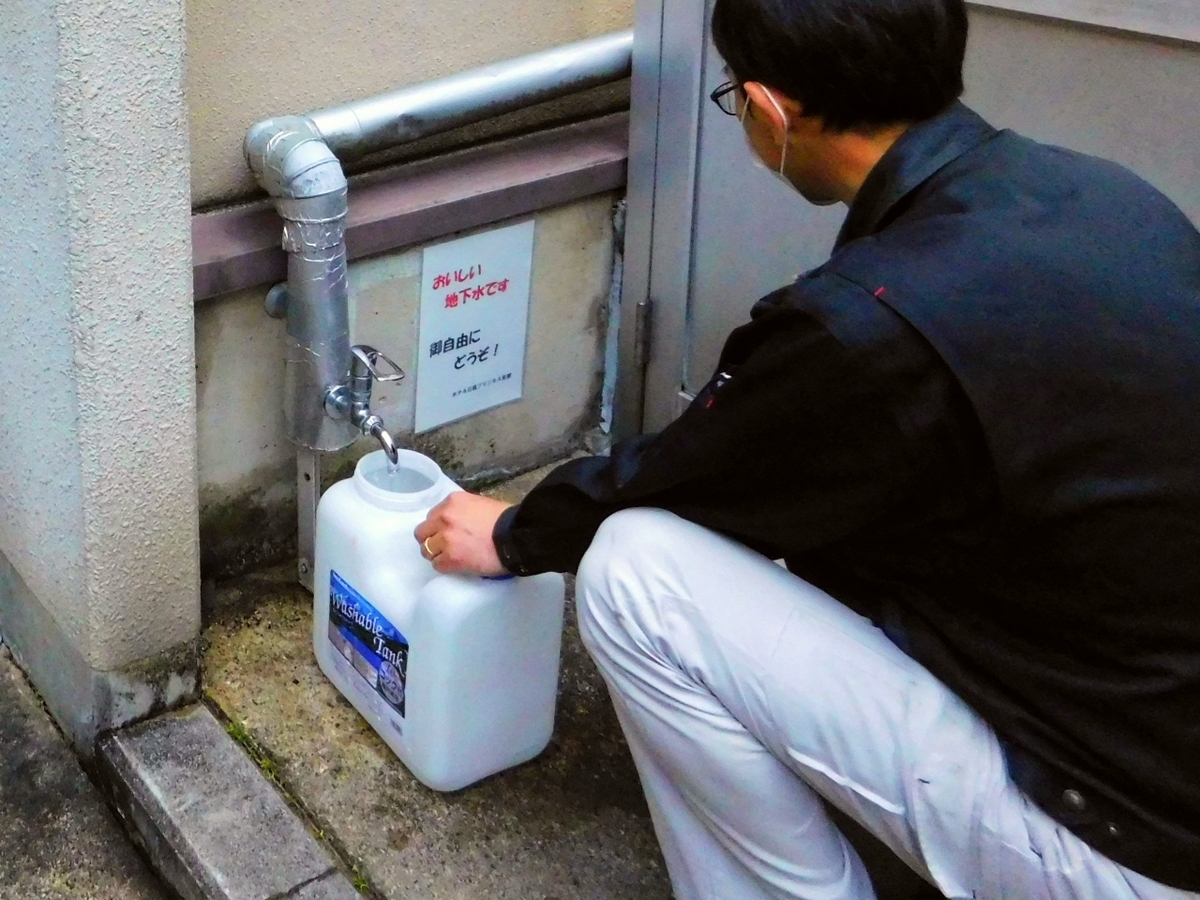
Water tap on the hotel grounds – Photo courtesy of Hotel Nikko Princess Kyoto
In the area around the hotel there is a high-quality underground water vein, and since it is connected to the same water vein as the spring water at Shimogamo Shrine and the Kyoto Imperial Palace, the hotel dug its own well. The naturally mineral-rich soft water pumped from the well is used throughout the hotel, including in the guest rooms, restaurants and banquet halls, and two water taps are open to the public free of charge so that anyone in the area can freely draw water at any time of the day or night.
The hotel’s well is also registered as a “disaster cooperation well” with the Kyoto City government, and in the event of a water outage such as the one that occurred in the Noto Peninsula earthquake, it will also play a role in supplying water as a “lifesaving water supply” for local residents. In a town where there is a constant flow of people, whether for shopping or business, it is important to have a plan in place for those who have difficulty returning home in the event of a disaster, so the hotel has a water tank that can hold 200 tons of groundwater at any one time. In addition to drinking water, they also have a stockpile of rice, charcoal, gas canisters, spare blankets, etc. to support the community in times of emergency.
Creating a “food recycling loop” to promote a sustainable “cycle” from the hotel
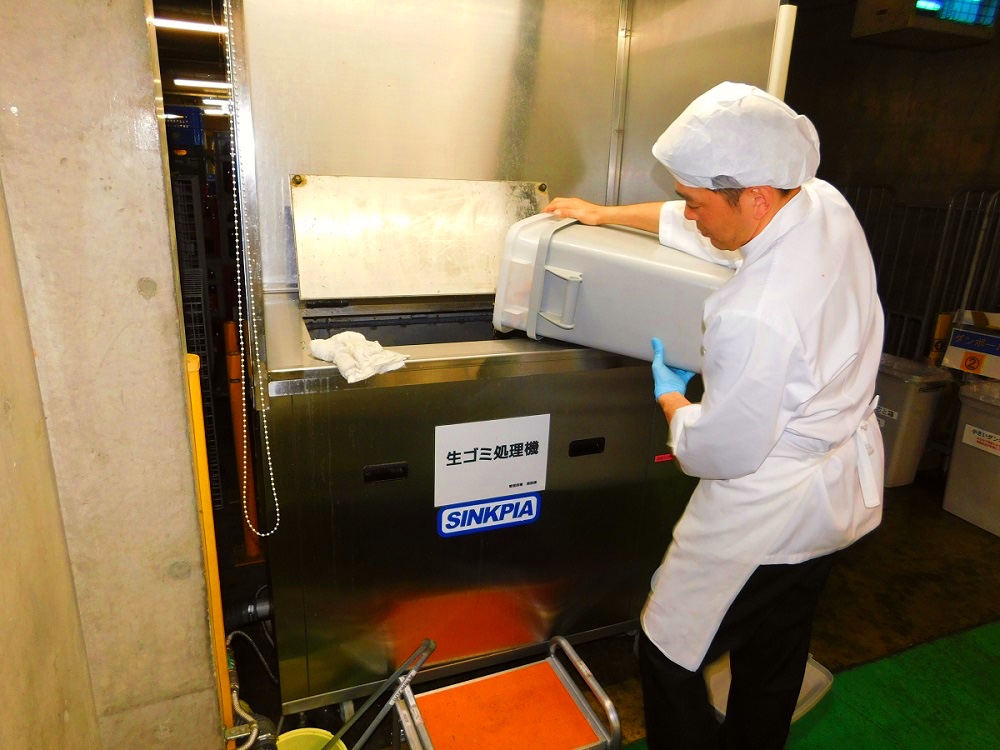
Food waste disposer – Photo courtesy of Hotel Nikko Princess Kyoto
One of the areas that the hotel is currently focusing on is its efforts to achieve the SDGs. In particular, the hotel is actively promoting in-house waste disposal, and in 2017, they introduced a state-of-the-art food waste disposer, which has enabled them to successfully reduce their food waste by 73.6%. The remaining food waste, such as lobster shells that cannot be broken down in the disposer, is used in a biogas power generation plant, achieving zero incineration. The “compost” produced as a by-product of power generation at the plant is used to grow organic rice at partner farms, and this rice is served in the hotel’s employee cafeteria.
This “food recycling loop,” which was established in collaboration with recycling businesses and agricultural, forestry and fishery businesses, has received all three of Kyoto City’s environmental certifications, namely, the “2R and sorting/recycling activity excellent business establishment certification,” the “2R special excellent business establishment certification” and the “industrial waste processing/3R excellent business establishment certification,” and has also received “permanent certification” from the Kyoto City Environmental Policy Bureau, a first among Kyoto’s many accommodation facilities. In June 2023, the hotel also received accreditation from the Minister of Health, Labor and Welfare, the Minister of Agriculture, Forestry and Fisheries, and the Minister of the Environment, attracting a great deal of public attention.
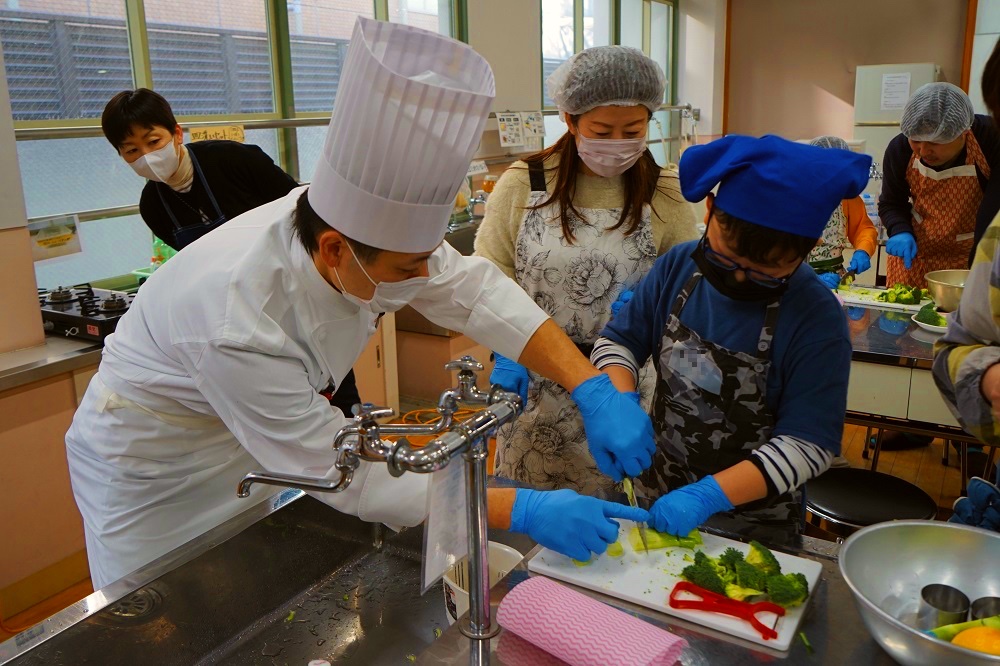
A scene from an educational cooking class for parents and children – Photo courtesy of Hotel Nikko Princess Kyoto
The hotel’s SDG-related initiatives have also been extended to the local community, and the “Parent-Child Mini Cooking Class” held at a local elementary school provided an opportunity to learn about reducing food loss and food waste, as well as a chance to learn professional cooking techniques from the hotel’s executive chef, who acted as the instructor. Sesame oil residue provided by one of the hotel’s suppliers was used in the recipe, and ingredients for the sweets were handed out as a gift for the class in an attempt to incorporate the supply chain.

Orangette – Photo courtesy of Hotel Nikko Princess Kyoto
The Orangette, which was added to the selection of take-out sweets in January 2024, is a product that “upcycles” the orange peels that would otherwise be thrown away by combining them with sustainable chocolate. At the restaurant, they also offer dishes made with soy meat, which is said to have a smaller environmental impact during production than beef and other meats, making it an effective way to help improve environmental issues, and the hotel aims to offer new dietary options.
Taking its 20th anniversary as an opportunity to consider what can be done to keep the hotel and the ancient capital of Kyoto loved 100 years from now
The hotel marks its 20th anniversary in 2024. In anticipation of this, renovations are under way, and on the 15th floor, which is the Executive Floor, the hotel has prepared guest rooms designed for long-term stays with inbound demand in mind. The guest rooms have been completely renovated, with new walk-in closets and spacious bathrooms, making them even more comfortable than before.

Photo courtesy of Hotel Nikko Princess Kyoto
In Kyoto, a city that attracts tourists from all over the world, the hotel strives to make your stay as pleasant as possible. And as Kawato explains, “The duty and raison d’être of a hotel is not only to provide accommodation for guests, but also to consider how it can coexist and prosper with the local community.” He hopes the hotel will continue contributing to the safety, development and sustainability of the local community, the environment and society through the hotel business, so that people from around the world will still love both the hotel and the city of Kyoto 100 years from now.
■Related links
